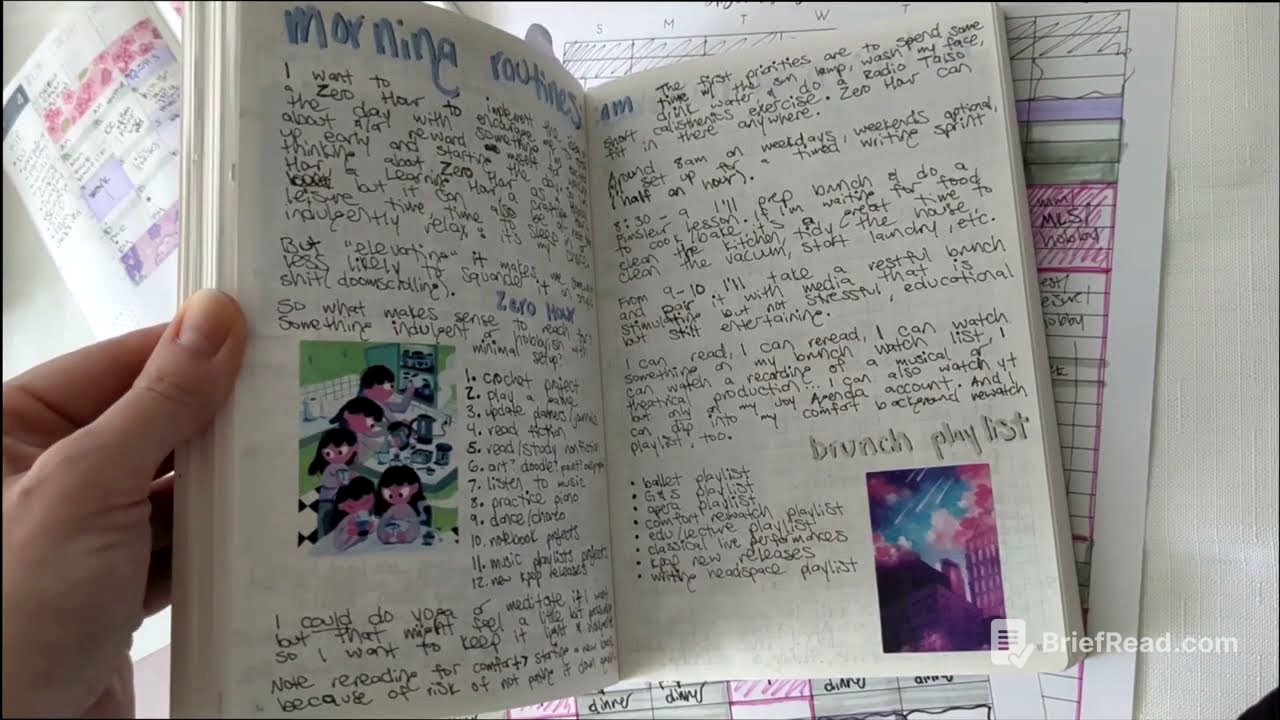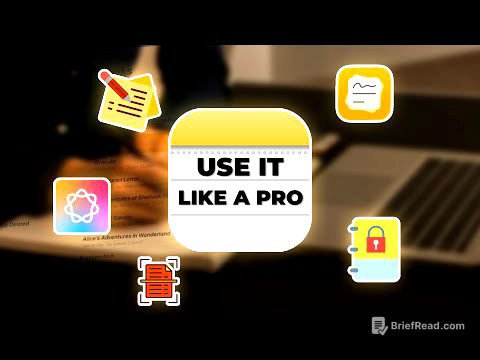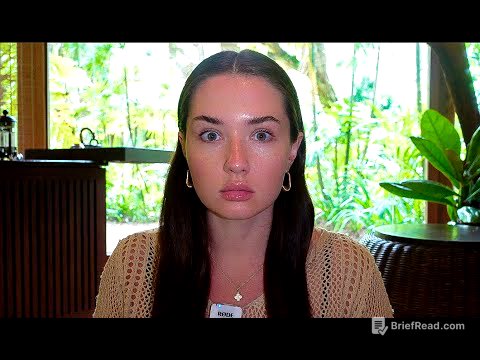TLDR;
This video explores the concept of a "Zero Hour" morning routine designed to make waking up and starting the day more appealing, especially for those struggling with fatigue, low energy, or mental health issues. The speaker shares personal experiences and ideas for incorporating enjoyable activities into the first hour of the day to motivate getting out of bed and avoiding unproductive habits like endless phone scrolling. The goal is to transform the morning into a rewarding and engaging time, setting a positive tone for the rest of the day.
- The "Zero Hour" concept is inspired by extracurricular activities before school, aiming to make mornings enjoyable.
- It involves dedicating the first hour to hobbies, learning, creative projects, or relaxation.
- The routine is designed to be flexible and adaptable to individual preferences and needs.
Introduction to the Zero Hour Concept [0:00]
The speaker introduces the concept of "Zero Hour" as a transformative morning routine, particularly beneficial for individuals who struggle with getting out of bed due to fatigue, low energy, chronic health issues, depression, or anxiety. The aim is to find a solution to avoid distractions like phone scrolling and instead start the day with intention. The speaker outlines a personal realistic morning routine consisting of using a sunlight lamp as an alarm, washing face, drinking water, refilling water bottle and doing a 3-5 minute exercise.
The Reality of Morning Routines and the Zero Hour Inspiration [0:37]
The speaker reflects on the challenges of maintaining a consistent morning routine and draws inspiration from the "zero hour" concept from middle school, where students could participate in fun activities like music before the regular school day began. This early morning engagement made waking up and going to school more appealing. The speaker considers how to replicate this positive experience by creating a "zero hour" that motivates waking up and engaging in enjoyable activities before work.
Ideas for Zero Hour Activities [2:15]
The speaker brainstorms various activities suitable for a "Zero Hour" routine, including starting a crochet project, playing video games, updating planners and journals, listening to relaxing music, and re-reading fiction. The speaker notes a potential pitfall of starting a new book, which could lead to distraction and procrastination throughout the day, suggesting sticking to re-reads for comfort. Other options include reading non-fiction, engaging in visual arts, deep listening to music, practicing a musical instrument (like the piano with volume control), dancing, working on notebook projects, and organizing music playlists.
Personalizing and Implementing the Zero Hour [5:14]
The speaker continues to explore options for "Zero Hour" activities, such as yoga or meditation, while emphasizing the importance of keeping the routine light and enjoyable to avoid feeling pressured. The speaker reiterates the idea of re-reading books for relaxation to prevent getting sidetracked by new material. The goal is to use the "Zero Hour" concept to encourage starting the day with enthusiasm and rewarding oneself for waking up early. The speaker envisions "Zero Hour" as a time for hobbies, learning, crafting, rest, leisure, or relaxation, ultimately aiming to make mornings more appealing and less prone to unproductive habits.









